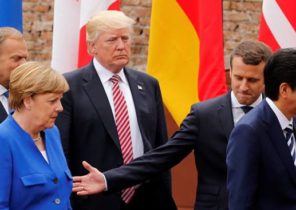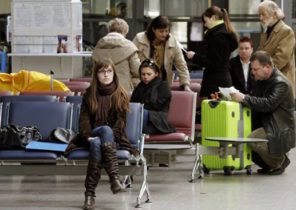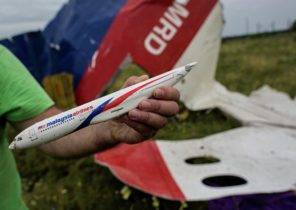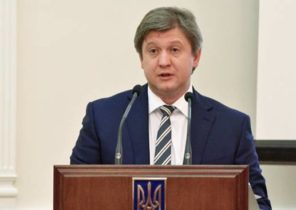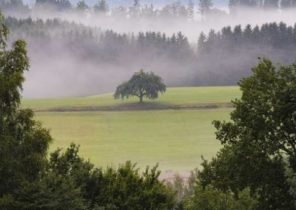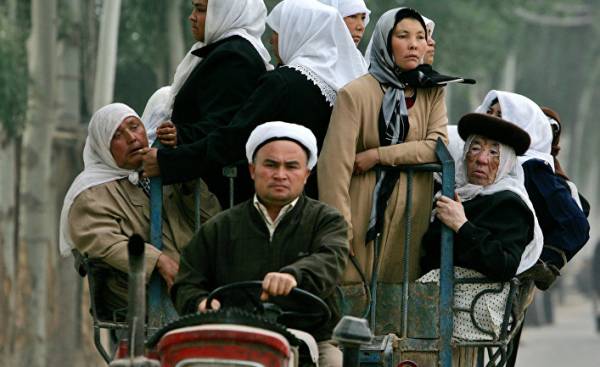
Russia is a natural land bridge. The country stretches from the farthest suburbs on the East to the borders of the West; it covers almost the entire territory of Eurasia — from the Bering sea to the Baltic sea. It begins the unification projects of the New silk road, which will be built five parallel land and sea corridors linking China with Europe, Russia is in a position where it may be either one of the main links of a developing network, or one of the main limiting factors in its development.
Russia has always held a very contradictory position in the development of initiatives to build a New silk road with China “One belt and one road”. On the one hand, Russia is involved in this project, making a profit in the form of customs duties and receiving additional impetus to the development and new economic perspectives. Through Russian territory a couple of existing land corridors “silk road”, often using the Russian transport terminals (or those dry ports in which it invests), as well as logistics areas. On the other hand, Russia pursues a policy that does not correspond to the mutually beneficial nature of the development of the silk road, and partly opposes China’s plans to build a network of new economic corridors in Central Asia and Eastern Europe — the regions that it still considers his fiefdom.
The creation of the Russia-led Customs Union, the Eurasian Union, it is actually one of the main circumstances that have created the conditions for the construction of the expanding railway network “New silk road”, which unites 39 train lines between China and Europe.
Closer cooperation between China and Russia
“The biggest breakthrough happened when Kazakhstan and Russia, along with Belarus signed a Treaty creating the Customs Union, — said the regional Director of logistics in Europe, Middle East and Africa Hewlett-Packard Ronald Kleijwegt (Ronald Kleijwegt), who led the organization of the first regular train service between China and Europe in 2012. It was a breakthrough because before this it was necessary to cross the border between Kazakhstan and Russia, [which] default accounted for 10% of the actual searches. That is, of the freight train of 50 containers five containers subject to inspection, which took at least two days or more.”
Russia currently is working with China construction details promising high-speed rail line between Moscow and Beijing, which will carry passengers and freight between the two capitals in just two days.
Even Russia has expressed interest in connecting its TRANS-Siberian railway highway with the Gwadar port in Pakistan through China-Pakistan economic corridor (CPEC), the main component of the initiatives of Beijing’s “One belt and one road”.
Also expanding Russia’s trade with China, increasing Chinese investment in the Russian economy, the countries that are developing partnerships in such sectors as aerospace industry, science, Finance, and infrastructure development — for example, the construction of high-speed railway between Moscow and Kazan with a cost of $ 15 billion.
Embargo on the import of agricultural products from EU countries
However, Russia still represents a major problem for the development of the New silk road — we are talking about a retaliatory embargo on agricultural products from the EU (but also from USA, Australia, Canada and Norway). This embargo, which was introduced in 2014 in response to Western sanctions against Russia imposed over the conflict in Ukraine, prohibits the import into the country and to transport across its territory of products such as French cheese, Dutch veal, Polish apples, beef, pork, fish and most dairy products. The biggest problem with this (besides the loss of the loss of revenue from trade), is that many of the products banned by Russia, would have been just those goods that otherwise would have gone by rail from Europe to the rapidly developing consumer market of China
This trade barrier greatly limits the ability of European companies to make full use of construction land corridors of the silk road.
A limiting factor
“The big problem we faced is the fact that Russia continues to apply sanctions against transportation through the territory of Russia perishable products from Europe to China or from Europe to Kazakhstan. At the moment, it is the limiting factor,” explains Ian Cullen (Jan Koolen), CEO of Dutch company Unit 45 producing containers with climate control, which in the absence of the embargo would carry goods such as fresh meat and products from Europe to China.
“We hope that in the near future it will be possible to reduce restrictions on exports, and we are allowed to export our meat, fruits and processed food to China,” — said the head of the administration of the łódź Voivodeship in Poland Witold Degree (Witold Stepien), which largely contributed to the organization of one of the first services of railway supplies between China-Europe.
“Today we are seeing pretty good demand for products of pharmaceutical, chemical, automotive, luxury goods and perishable products, fruits and vegetables. Although at the moment they fall under the influence of the Russian embargo,” says KIIS, Kuiken (Kees Kuijken) from the logistics service of the New silk road.
Prior to the embargo, the EU has delivered food worth about $ 13 billion a year, and this category of goods accounted for 10% of total EU exports to Russia.
“We hope that in the future the embargo will be lifted. And if it is removed, then I think we will have some degree of balanced trade between China and Europe, in which China would be supplied large quantity of perishable goods, and from China to Europe in large quantities to enter computers and other products,” said Cullen.
To cancel the food sanctions should not count
But wait we probably shouldn’t. Various media outlets continue to publish articles about how the embargo has helped to strengthen their own agricultural sector. And agricultural exports are now for the first time in history, according to available data, provides to the country more income than the export of weapons.
Retaliatory food sanctions Russia was originally introduced in 2014 for one year, but since then they twice extended — the last time in July. This indicates that these restrictions will be in effect at least until the end of 2017.
For this reason, agricultural producers and shippers of the EU looks increasingly attractive to the newly created southern railway corridor, which is to bypass Russia through the Caspian sea, Azerbaijan, Georgia and Turkey.
